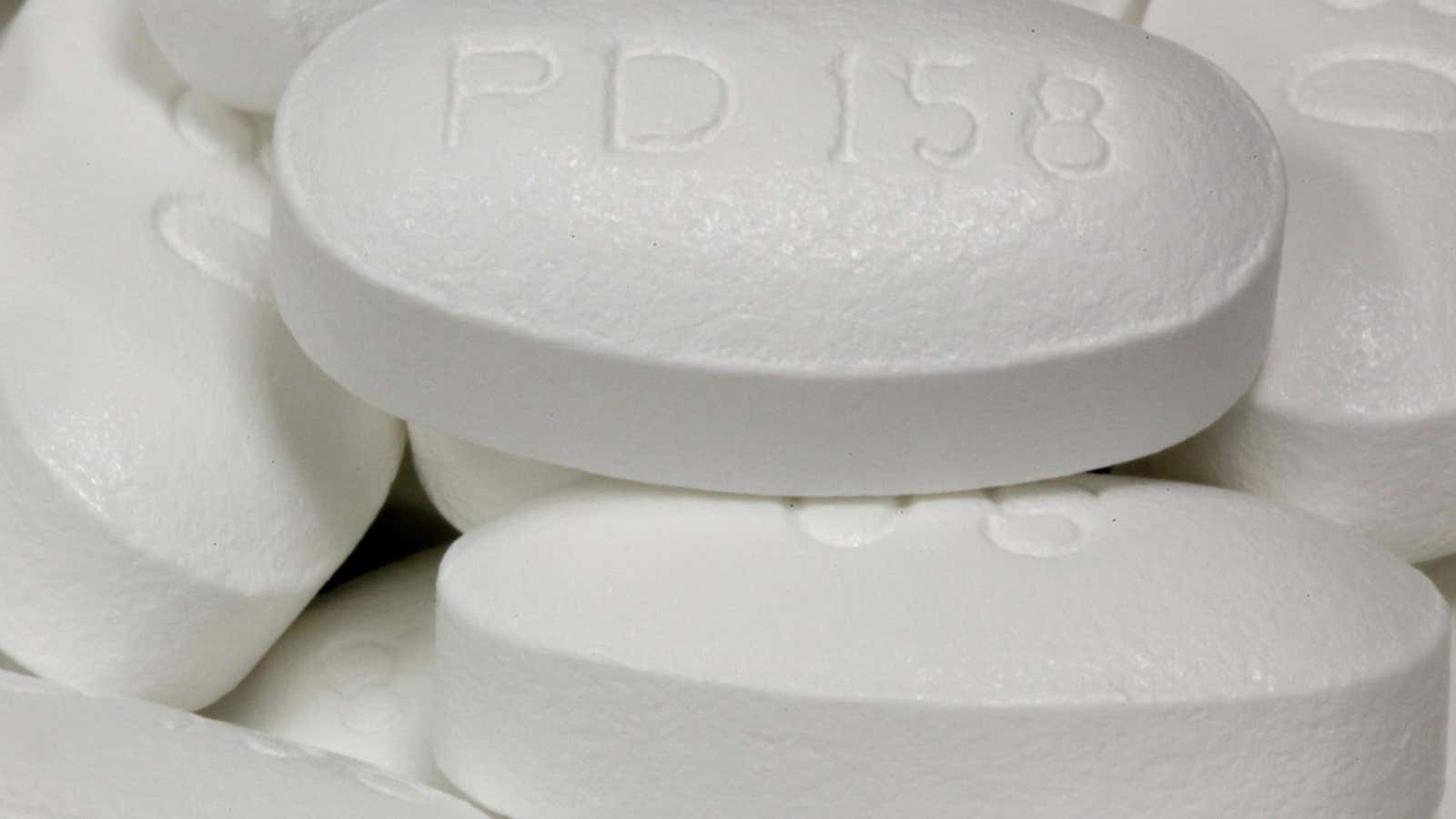The word “concussion” often connotes images of professional athletes smashing into one another on a field, or members of the military within a close range of an artillery blast. In reality, though, most traumatic brain injuries don’t occur in athletes or soldiers, but in the elderly.
Adults are more prone to falling and getting into car crashes as they age. Although these events are less dramatic than sports accidents, they can still result in serious trauma to the brain. As of 2013, traumatic brain injuries in the US occur at the highest rates in adults who are 75 or older.
In younger adults, concussion, which is loosely defined as trauma that strain brain cells and disrupt the connections between them, have been found to double the risk of a person developing dementia later in life. The risks to older adults are thought to be similar, but hasn’t been as well-studied. However, there may be a decades-old drug that can reduce their risk. A study published this week in the journal JAMA Neurology found that statins, a class of drugs used to lower cholesterol, may be moderately protective against dementia among older adults who suffer concussions.
The researchers, led by a team at the University of Toronto, tracked nearly 29,000 patients over the age of 66 who were admitted to hospitals in Ontario and diagnosed with concussions from 2003 to 2013. They also saw which of those patients started taking statins for heart problems within three months of their concussion through Canada’s universal health system and Ontario’s drug program.
Researchers then used these databases to see which of these patients had gone on to develop any form of dementia after four years. Of the 28,815 patients enrolled in the study who had been concussed, roughly 5,000 went on develop dementia—a rate of 43 cases per 1,000 people, and more than double the rate of the roughly 19 cases per 1,000 people among those who had not had concussions. Among those who started taking statins, however, the rate of developing dementia dropped to 37 cases per 1,000 people.
Six fewer cases of dementia per 1,000 is small, but it suggests that statins may help preserve some of the cognitive function in brains that have been concussed. Older brains may be able to repair some damage from concussions, but other damage may be permanent, says Donald Redelmeier, a professor of medicine at the University of Toronto who led the study. Brains can often find a way to work around forms of permanent damage, as they do to cope with normal aging. However, if misshapen proteins start to accumulate in the brain—as is the case with most forms of dementia—the brain may be less capable of coping.
It could be that statins help preserve the brain’s capacity to cope with other problems after a concussion, Redelmeier says. It’s hard to say why that’s the case. Because it was an observation-only study, patients weren’t examined with MRI or CT scans, and so researchers couldn’t tell what was going on in patient’s brains after they were concussed, and how statins made have helped.
Importantly, Redelmeier’s team also looked at dementia rates among older patients who were treated for ankle sprains, and found that they were the similar among those who took statins and those who did not. This suggests that statins aren’t universally protective against developing dementia—although they also didn’t have any negative consequences for patients, either.
It’s too soon to say that anyone with a concussion should be put on statins to prevent dementia, but this work opens the door for further research to understand the relationship between the two. In the meantime, knowing that statins can reduce dementia risk after concussions may encourage older adults to actually take their cholesterol-controlling medication, Redelmeier noted. Because having high cholesterol is largely asymptomatic, people often don’t take their medication, which puts them at a much higher risk of developing heart disease.
